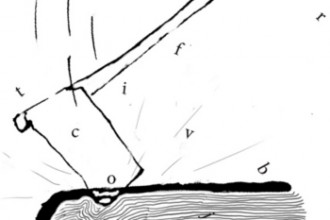Les MisérablesÂ
-Victor Hugo, trans. Norman Denny
Les Misérables fits into Henry James’ category of ‘large, loose, baggy monsters’ — those novels that spread out like whirlpools and (sometimes) drag you in. In a century filled with writers who relished the sound of their own voice, Victor Hugo was one of the most garrulous: you imagine that his working day only ended when his pen was prised from his fingers and servants hauled him from his desk. Les Mis includes novella-length tangents on subjects as diverse as the history of sewers, the battle of Waterloo, ‘the convent as an abstract idea’ and Parisian street slang.
 Hugo tried to cram the world into a single book, but he remained coy on one subject. ‘At the door of every bridal bedchamber’, he writes, ‘an angel stands, smiling, with a finger to his lips.’
 Les Mis has a lot to say, both overtly and covertly, on the subject of morality. At times, Hugo becomes didactic: on first reading the novel, the Goncourt brothers compared him to ‘those English street preachers who harangue strollers in the parks on a Sunday.’
 When he deigns to harangue his readers on the subject of sex, Hugo’s message seems to be clear: you’re better off without it. Take the two characters who serve as moral exemplars in the novel. Hugo’s characters are rarely, if ever, two-dimensional, and even the saints were once sinners. Bishop Myriel, the man who transforms Jean Valjean’s life, marries young but ‘attracted much gossip despite this marriage.’ Hugo disapprovingly narrates the ‘distractions and frivolities that occupied his life’. The French revolution marks a turning point for Myriel: he is forced to emigrate to Italy, where his wife rather conveniently dies ‘of the chest complaint that had long afflicted her.’ A decade later, he returns to France as a priest and lives in ‘profound seclusion’, attended by his unmarried sister and an elderly servant who suffers from asthma.
 Out of this austere, sexless existence, Myriel ascends to something approaching sainthood. He offers a room to the released convict Valjean and ‘turns the other cheek’ when Valjean escapes in the night with the bishop’s basket of silver.
 What does Valjean learn from Myriel? Where Myriel offers candlesticks to Valjean in addition to the silver-basket, Valjean offers his purse to the would-be robber Montparnasse. As well as compassion, Valjean learns the value of austerity. Although he is 25 at the time of his arrest for stealing a loaf of bread, Valjean remains unmarried and he dies a virgin (can anyone else hear an echo of ‘virgin/vierge’ in Valjean?). For the latter part of the novel, he lives with Cosette, who is brought up in perhaps the most austere environment imaginable: a convent school.
 Purity is contagious. Hugo reserves his most saccharine vocabulary for Cosette’s relationship with Marius: ‘The first kiss they exchanged was also the last. Since then Marius had gone no further than to touch her hand with his lips… To him, she was an essence, rather than a woman… When on occasion she bent down to pick something up and her corsage gaped to disclose the top of her bosom, he turned his head away.’
 Cosette, her heart ‘intoxicated with chastity’, isn’t likely to repeat the ‘mistake’ of her mother, Fantine. Fantine is one of the few characters in the novel who dares to have sex outside marriage, and Hugo makes sure she is harshly punished for her ‘sin’. Fantine is introduced as ‘an enchanting girl… still with a flavour of the working-class’ (no doubt the cause of her indiscretions: for too many people of Hugo’s generation, sex was a ‘vice’ associated with the poorest section of society). After being seduced by Tholomyès, an ‘ill-preserved rake, wrinkled and gap-toothed, with a bald patch…’, she sinks into indigence. She sells her teeth for two napoleons and, later, sells her body too. She gives Cosette to the scheming Thénardiers and dies before Valjean can reunite her with her daughter.
  So far, so Victorian. Virtuous characters (Marius and Cosette) are rewarded; characters who submit to temptation, or financial necessity (Fantine), are punished, preferably by death. And yet Hugo’s character’s are always complex. ‘Even in hearts intoxicated with chastity Nature is always present’: that coy angel at the door of the bedchamber momentarily becomes a peeping tom as Hugo launches into a reverie about ‘the ravished virgin’ as ‘consenting, trembling sacrifice.’
 One of the most extraordinary passages in the novel hints at a quasi-incestuous connection between Valjean and Cosette. On seeing Cosette’s note to Marius reflected in the mirror, Valjean realises Cosette is ‘escaping from him, slipping through his fingers like water, like a mist.’ Hugo writes that Valjean ‘loved Cosette as his daughter, his mother, his sister; and since he had had neither mistress nor wife, since human nature is a creditor who accepts no compromise, that kind of love, too, was mixed with the others…’
 We’re back to the idea of ‘Nature’ being present even in the chastest of hearts. No reader should forget that Valjean is a sex-starved old man living with a beautiful teenage girl. Almost wistfully, Hugo reminds the reader that ‘No marriage between them was possible, not even a marriage of souls…’
  No character in Les Misérables is above sexual impulses — not Bishop Myriel, not Valjean, not even the ‘consenting, trembling sacrifice’ Cosette. While the surface of the novel is full of smiling angels and faux purity, sexuality waits between the lines to drive the plot. Â




